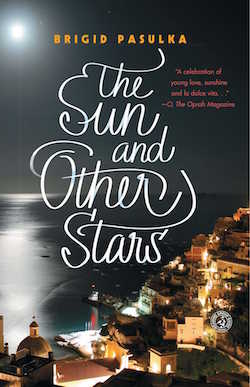Born and raised in San Benedetto, an Italian village obsessed with football (“soccer,” to Americans), Etto is an emotionally frayed young man slowly disengaging himself from the village after the deaths of his mother and twin brother. He sees life in San Benedetto as pointless, repetitive, and constrictive, and refuses to join in the village’s preoccupation with football.
Like Etto, my relationship to football has always been a bemused one, particularly when living in places like England where it’s a highly regarded sport, a national obsession verging on religion. There, football pulls strangers together to cheer for the national team during international matches, and compels best friends to fighting when they support opposing teams.
Etto, though, has a reason to be suspicious of everything his town takes for granted. A few years earlier, his twin brother Luca died in a motorcycle accident. Luca was an up-and-coming football star, the favored child in the family, and his death created a rift between Etto and his parents. A year later, Etto’s grief-stricken mother drowned herself in the Mediterranean Sea, minutes away from their home. Now Etto is left to endure a strained relationship with his father, a third-generation butcher who expects him to follow in his footsteps. Etto is withdrawn, hiding behind a quick wit and repertoire of sharp retorts, working in his father’s shop, wandering around town, waiting for something to happen (or at the very least for the tourists that plague the village each summer to finally leave).
But all this changes when an Italian football star called Yuri Fil visits the village with his sister Zhuki. Etto promptly falls in love with her and he soon finds himself playing football with Yuri and his bodyguard every night, plotting ways to spend time with Zhuki. Etto slowly lets go of his cynicism, and allows himself to feel with his heart again.
The Sun and Other Stars taught me that football isn’t just a game. It’s not just about kicking a ball from place to place or mindlessly supporting one team for decades. Football is about hope, it’s about community. As Etto discovers, it’s about opening yourself up to the world around you, whether passing the ball to teammates, accepting sympathy from those who care about you, or allowing yourself to run after the people you love.
Beautifully written, The Sun and Other Stars transports the reader to a wonderful place that is no less real or complicated than everyday life. It is the flawed grace and hope with which these people handle their problems that makes this novel worth reading. I found myself in the middle of a snowy winter night, rooting through the fridge for some gelato, eager to fall into the warmth of San Benedetto again.
Read more about The Sun and Other Stars here.









